GERoNIMO
Generalized EMF research using novel methods. An integrated approach: from research to risk assessment and support to risk management
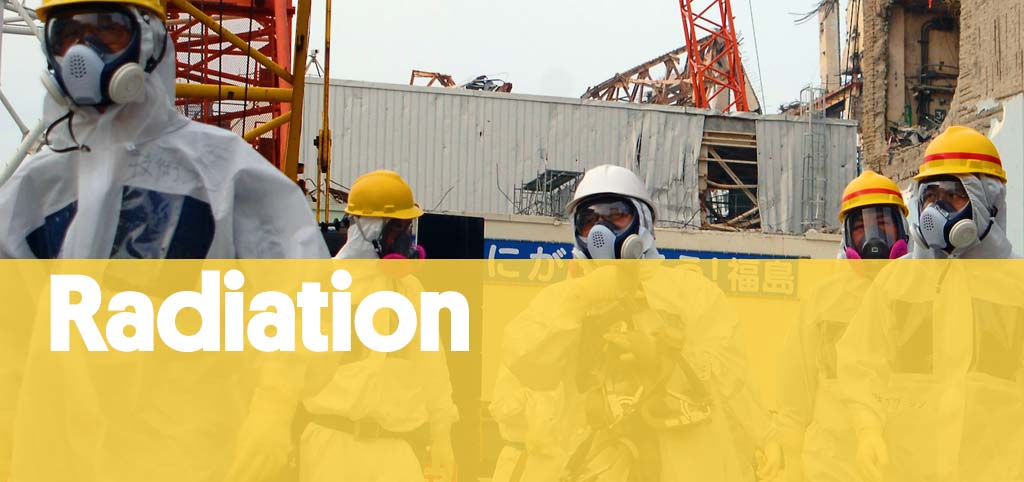
- Duration
- 2014-2018
- Coordinator
- Elisabeth Cardis (ISGlobal)
- Funded by
- European Comission
The European population is increasingly exposed to new physical and chemical agents in the environment, some of which may be damaging to health. Among these, electromagnetic fields (EMF) are one of the most widespread, and their application in new technologies continues to grow, with novel uses being actively developed and commercialised. Although there is some concern among the public and public health professionals alike about possible health effects related to EMF, results of studies to date are inconsistent.
The overall objectives of this project are to close gaps in knowledge on EMF and health and reduce exposures. Specific objectives are as follow:
- To better understand mechanisms underlying possible health effects of EMF
- To better characterise current and future population levels of EMF exposure in Europe
- To further the state of knowledge on EMF and health
- To improve health risk assessment of EMF and
- To reinforce policy development and propose non-technological means to reduce EMF exposure.
The GERoNiMO (Generalised EMF Research using Novel Methods) project uses an integrated approach, bringing together researchers from different disciplines, research institutions and member states to address key questions identified by recent European projects (such as the European Health Risk Assessment Network on Electromagnetic Fields Exposure (EFHRAN)) and international bodies (e.g. the World Health Organisation (WHO) International EMF Project Research Agenda)
The project builds upon existing European resources (large-scale prospective cohort and case-control epidemiological studies of different populations, exposure assessment techniques, mechanistic and animal models and health impact modeling), using, where appropriate, novel methods (including systems biological, and the integration of potential biological markers and innovative exposure valuation instruments into epidemiological studies) and existing expert networks to achieve these objectives. GERoNiMO will, in particular, allow the investigation of potential effects of exposure to radiofrequency (RF) and intermediate frequency fields (IF) – alone and in combination with other environmental exposures – on the risks of cancer, neurodegenerative diseases, behaviour, reproductive outcomes and aging.
The integrated approach in this multidisciplinary project will significantly improve the strength, coherence, credibility and coordination of European research into EMF and health, ultimately reducing fragmentation and improving the incorporation of evidence-based risk assessment into public health policy development and communication. Specifically, GERoNiMO will provide support to European Union (EU) and national regulatory bodies by improving reliability of research data on potential effects of EMF exposures. It will also contribute to EU management and communication activities, following the lead of previous EU-funded networks (EMF-Net and EFHRAN).
The project is lead by ISGlobal and includes 19 partners from 13 countries:
- ISGlobal, Spain
- iMinds, Belgium
- Aarhus University, Denmark
- Finnish Institute of Occupational Health, Finland
- University of Eastern Finland, Finland
- Association pour la recherche épidémiologique dans le cancer de l’enfant et de l’adolescent, France
- Université Bordeaux 1, France
- Orange, France
- Ludwig-Maximilians-Universitaet Muenchen, Germany
- Gertner Institute for Epidemiology & Health Policy Research, Israel
- Consiglio Nazionale delle Ricerche, Instituto di Elettronica e Ingegneria dell’Informazione e delle Telecomunicazioni IEIIT, Italy
- Università degli Studi di Torino, Italy
- Utrecht University, Netherlands
- Nasjonalt Folkehelseinstitutt, Norway
- Institute of Non-Ionising Radiation, Slovenia
- Foundation for Research on Information Technologies in Society, Switzerland
- Swiss Tropical and Public Health Institute, Switzerland -
- Public Health England, United Kingdom
- Schneider Children’s Medical Center Israel, Israel
Current status
GERoNiMO is a five year project that started on 1 January 2014.
Financial support
Financial support for the study is provided by the European Union (grant agreement 603794) and local and national funding sources.
Our Team
Principal Investigator (PI)
-
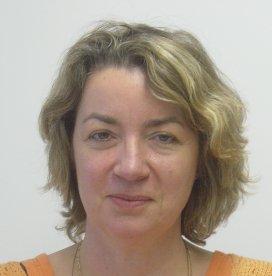 Elisabet Cardis Research Professor, Head of the Radiation Group
Elisabet Cardis Research Professor, Head of the Radiation Group
Our Team
-
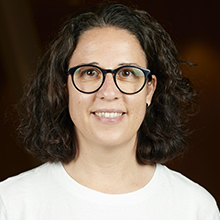 Gemma Castaño Staff Scientist
Gemma Castaño Staff Scientist -
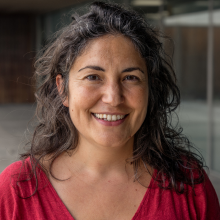 Mònica Guxens Research Professor
Mònica Guxens Research Professor -
 RODNEY ORTIZ Project Manager
RODNEY ORTIZ Project Manager -
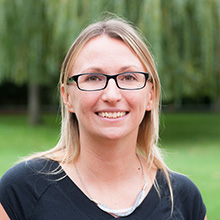 MICHELLE TURNER Associate Research Professor
MICHELLE TURNER Associate Research Professor
Other projects
See Past ProjectsMCC-Spain
Population based multicasecontrol study on common tumours in Spain
INMA - Environment and Childhood Project
HELIX
Novel tools for integrating early-life environmental exposures and child health across Europe
EGG/EAGLE
Early Genetics Growth/Early Genetics and Lifecourse Epidemiology
PACE
Pregnancy and Childhood Epigenetics
LIFECYCLE
Early-life stressors and LifeCycle health
OMEGA-NET
Network on the Coordination and Harmonisation of European Occupational Cohorts
BiSC (Barcelona Life Study Cohort)
HARMONIC
Health effects of cArdiac fluoRoscopy and mOdern radIotherapy in paediatriCs
Mobilise-D
Connecting digital mobility assessment to clinical outcomes for regulatory and clinical endorsement
EARLY-ADAPT
Signs of Early Adaptation to Climate Change
COVICAT
Cohorte Covid-19 en Cataluña
ATHLETE
Advancing Tools for Human Early Lifecourse Exposome Research and Translation
CONTENT
Cohort of COVID-19 in Spain: social dynamics, mental health and inequalities
EUCAN-Connect
A federated FAIR platform enabling large-scale analysis of high-value cohort data connecting Europe and Canada in personalized health
OBERON
An integrative strategy of testing systems for identification of EDs related to metabolic disorders
EXPANSE
EXposome Powered tools for healthy living in urbAN SEttings
AURORA 2021
Actionable eUropean ROadmap for early-life health Risk Assessment of micro- and nanoplastics
ONES
Fine Particle Matter, Fetal Growth, and Neurodevelopment: Examining Critical Windows of Susceptibility
AIR-NB
Pre-natal exposure to urban AIR pollution and pre- and post-Natal Brain development
El impacto de la exposición al metaboloma de esteroides materno-fetales en el crecimiento infantil y los resultados neurológicos (IGRO)
Project Code: PI21/01269
NutinBrain
The role of seafood and nut consumption on human neurodevelopment from pregnancy to adolescence
ALTER - Contaminación del aire, microbiota intestinal y neurodesarrollo en los primeros 24 meses de vida
Project Code: PI21/01278
Alimentación S2: por una dieta saludable y sostenible
Estudio sobre la exposición a nano y microplásticos a través del agua de consumo de Barcelona
¿Es mejor consumir el agua de grifo si queremos reducir la exposición a nano/micropláticos?
UrbanKids
Urban and social environment and childhood obesity – a natural moving2health experiment
Urban Health Citizen Lab
Urban planning, environment and health
Characterizing Oral Exposure to Nanoplastics and Microplastics
Characterization of Oral NMP Exposure
iGenCO
In-Depth Genomics and Cross-Omics Analysis for Undiagnosed Rare Diseases on a User-Friendly Collaborative Platform
5G expOsure, causaL effects, and rIsk perception through citizen engAgemenT
GOLIAT
CityExposomeCat
An Exposome Approach to Urban Health: Individualized Environmental Exposure Assessment in an Adults Population Cohort Study (GCAT)
TwinAir
Digital Twins Enabled Indoor Air Quality Management for Healthy Living
Subclinical Infections in Children and Long Term Health Effects
Infection acquisition in early life and health outcomes in childhood - MARATO TV3
UBDPOLICY
The Urban Burden of Disease Estimation for POLICY Making
Exposición prenatal a sustancias poli y perfluoradas en agua de consumo y neurodesarrollo en el inicio de la vida
Project Code: PI20/00829
Base genética materna y fetal de la función placentaria
Project Code: PI20/01116
TOLIFE
Combining Artificial Intelligence and smart sensing TOward better management and improved quality of LIFE in chronic obstructive pulmonary disease
BWater
Drinking Water in Barcelona: Sustainability and Health Impact Assessment
CUPID
INTERCAMBIO
Interventions to promote mental and physical health in changing working environments due to climate change, sustainable work practices, and in green jobs
intoDBP
Innovative Tools to Control Organic Matter and Disinfection Byproducts in Drinking Water
FINDOOR
FTIR spectroscopy for real-time detection of bacterial outbreaks and the rapid identification of pathogenic serotypes, relapsing infections and antibiotic resistance
OccRF-Health
Occupational exposure to radiofrequency electromagnetic fields: From exposure assessment to study of health in workers and their offspring
EPHOR
Exposome Project for Health and Occupational Research
EXPONIT
Analysing and studying how night shift work affects workers' circadian rhythms and health



